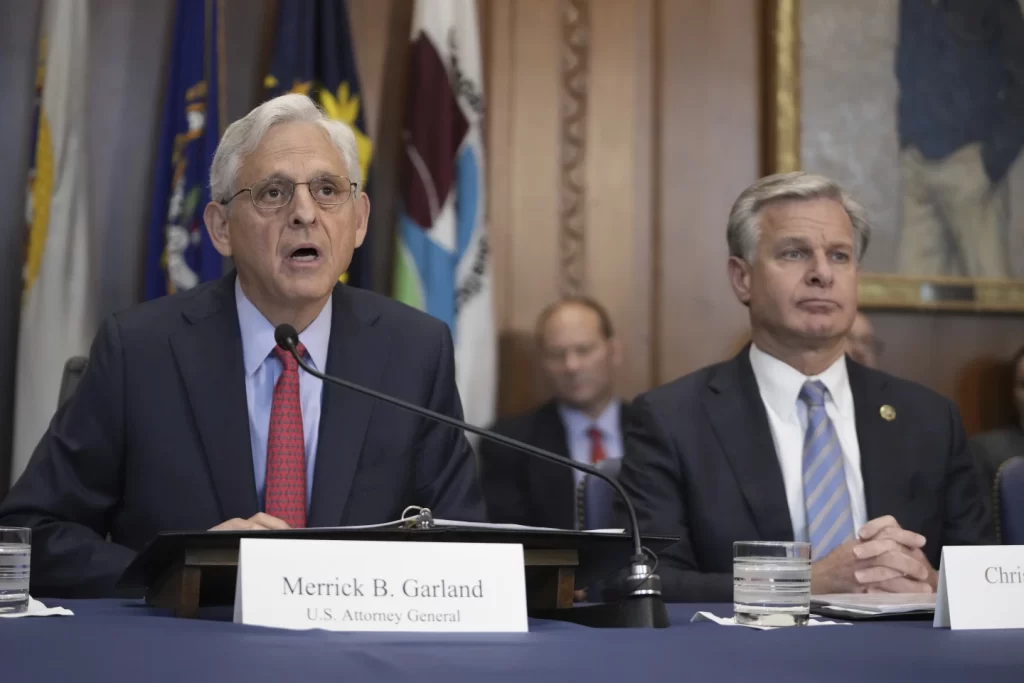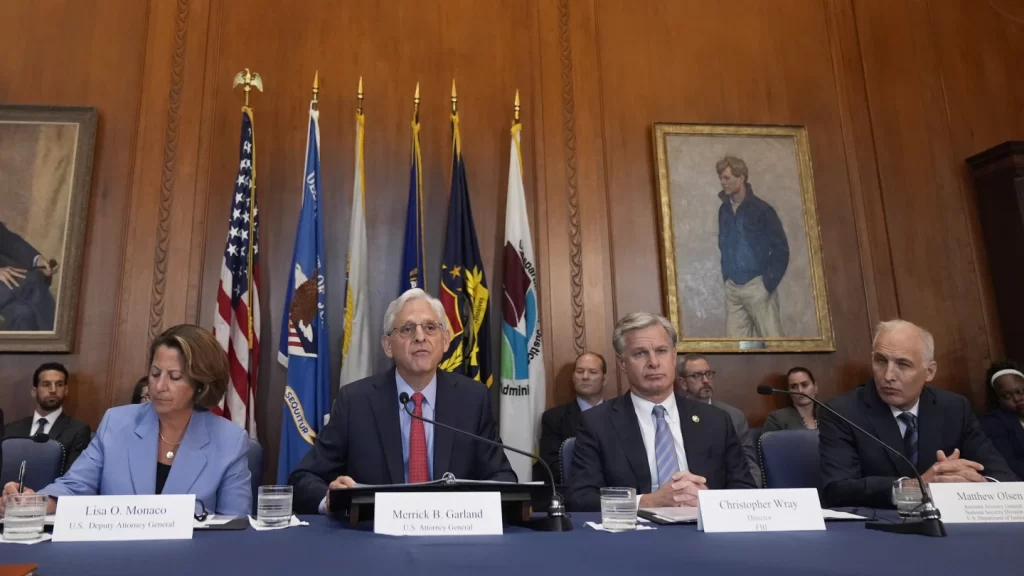The Biden administration on Wednesday accused Russia of orchestrating a wide-ranging effort to influence the U.S. presidential election, including using state media to spread disinformation and enlisting unwitting American influencers to propagate propaganda.

Attorney General Merrick Garland announced criminal charges, the seizure of internet domains, and sanctions related to these Russian disinformation efforts. The actions specifically target Russia’s use of state media to recruit American influencers for spreading propaganda and misinformation.
The measures include sanctions against leaders of RT, a Russian state media organization previously required by the Justice Department to register as a foreign agent. Visa restrictions have also been imposed as part of the U.S. response.
U.S. intelligence agencies have previously asserted that Russia was employing disinformation tactics to interfere in the election. The announcement from Garland is expected to reveal the extent of U.S. concerns and signal legal actions against suspected participants.
Deputy Attorney General Lisa Monaco, in a recent speech, identified Russia as the primary threat to the election. She highlighted the increasingly sophisticated techniques used by Russian President Vladimir Putin and his proxies in their interference operations, targeting specific voter demographics and swing-state voters to manipulate election outcomes.

The U.S. government’s concerns focus on cyberattacks and disinformation campaigns designed to influence the November vote. Tactics include using state media like RT to advance anti-U.S. messages and content, as well as networks of fake websites and social media accounts that amplify claims and inject them into American online conversations.
U.S. officials note that Russia is taking a whole-of-government approach to influence the election, including the presidential race. Groups linked to the Kremlin are increasingly outsourcing the creation of digital propaganda to marketing and communications firms within Russia, partly to obscure their involvement.
The ultimate goal, according to U.S. authorities, is to get Americans to spread Russian disinformation unknowingly. Methods include creating fake websites mimicking U.S. news outlets and using AI-generated social media profiles.
The Russian Embassy has not immediately responded to requests for comment on these accusations.
As the situation develops, U.S. law enforcement and intelligence agencies continue to monitor and respond to perceived threats to election integrity.



